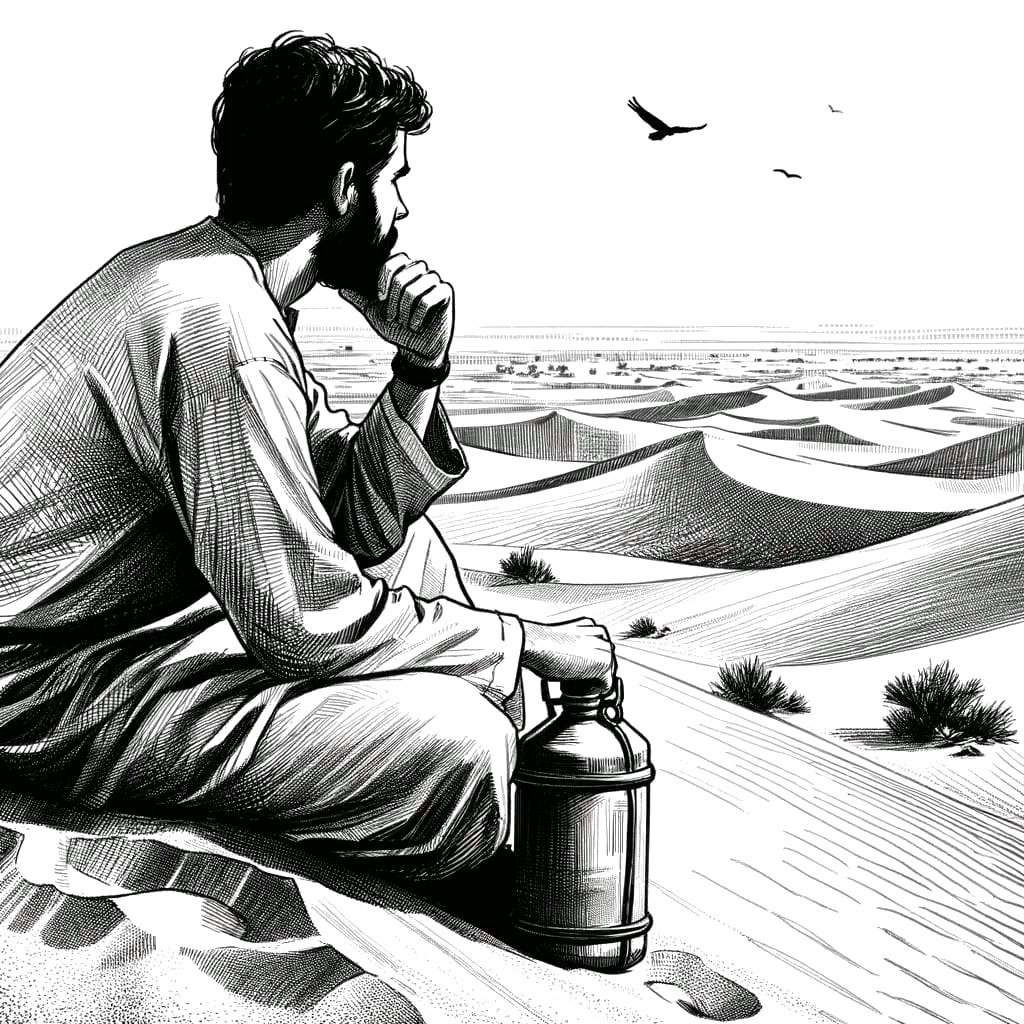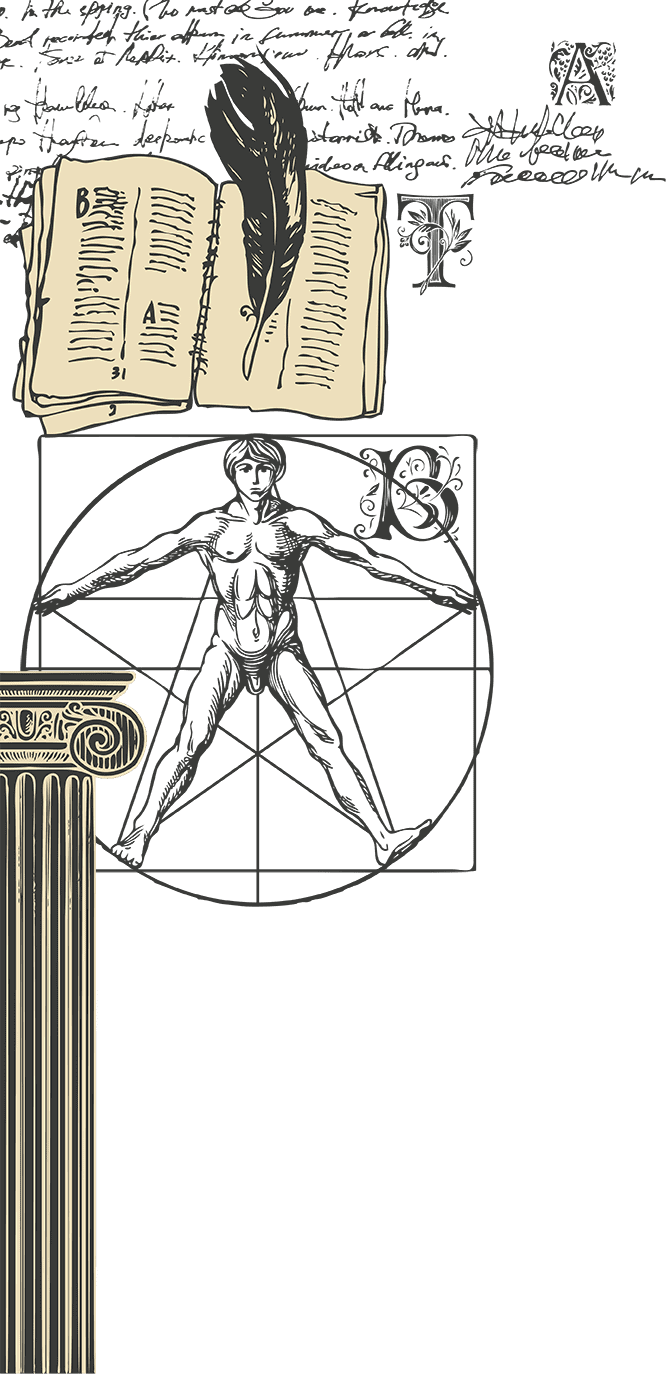
In the barren expanse of the desert, beneath the caustic sun, a man named Hamid sought out the sage wisdom of Jalaluddin Rumi, the legendary Sufi mystic. All that he found, however, was an enormous cactus stretching up towards the sky, its spiny silhouette stark against the horizon.
He stared at this cactus, feeling a strange, inexplicable connection to it. He asked it, “Are you Rumi?” but the cactus remained silent. There were no words, no revelations, just the quiet hum of the desert winds and the far-off cries of a lone bird.
Undeterred, Hamid decided to wait. He pitched a small tent by the foot of the cactus and there he lived, day after day, with nothing but his scant rations and the companionship of the silent plant. As the sun journeyed across the sky each day, it bathed the cactus in different shades of color, from the blinding brightness of noon to the soft gold of twilight. The changing hues were like a slow, silent symphony, mesmerizing in their own way.
One evening, as Hamid sat looking at the cactus, he asked again, “Are you Rumi?” The cactus remained silent, a stoic silhouette against the growing darkness. But Hamid found himself thinking about the cactus, about its steadfastness, its adaptation to the harsh desert conditions, its quiet endurance. He realized he knew nothing about this plant, nothing about the mysteries of life it represented.
The days turned into weeks. His food was scant and his strength was waning. The desert heat took its toll, and Hamid started to drift in and out of consciousness. Hallucinations danced in his weary mind, blurring the line between reality and fantasy.
On the fortieth day, as the sun was setting and casting long shadows across the desert, Hamid, barely holding onto his consciousness, asked the cactus again, “Are you Rumi?” To his surprise, the cactus seemed to answer.
“Yes, I am. But what difference does it make to you? You have to become Rumi.”
The words echoed in Hamid’s mind. He realized the truth of it. He had journeyed all this way to find Rumi, but Rumi was not a person to be found. Rumi was a state of being, a way of understanding, a way of loving, of accepting life as it comes, just as the cactus did in the harsh desert.
Hamid wept, tears falling onto the parched sand. He was not just looking for Rumi. He was looking for himself, for the peace and wisdom Rumi represented. The journey had been grueling, but now, he understood. He needed to cultivate that peace and wisdom within himself. He needed to become Rumi.
And so, as the desert night wrapped him in its quiet embrace, Hamid sat by the cactus, no longer questioning, but embracing his journey of self-discovery, ready to become his own version of Rumi in the vast and silent desert.
